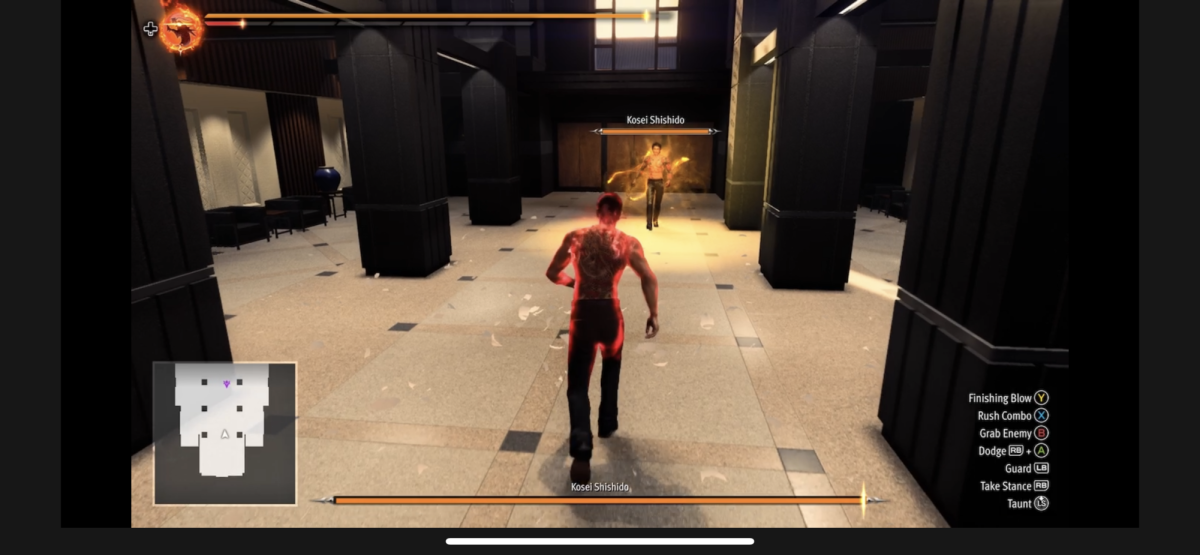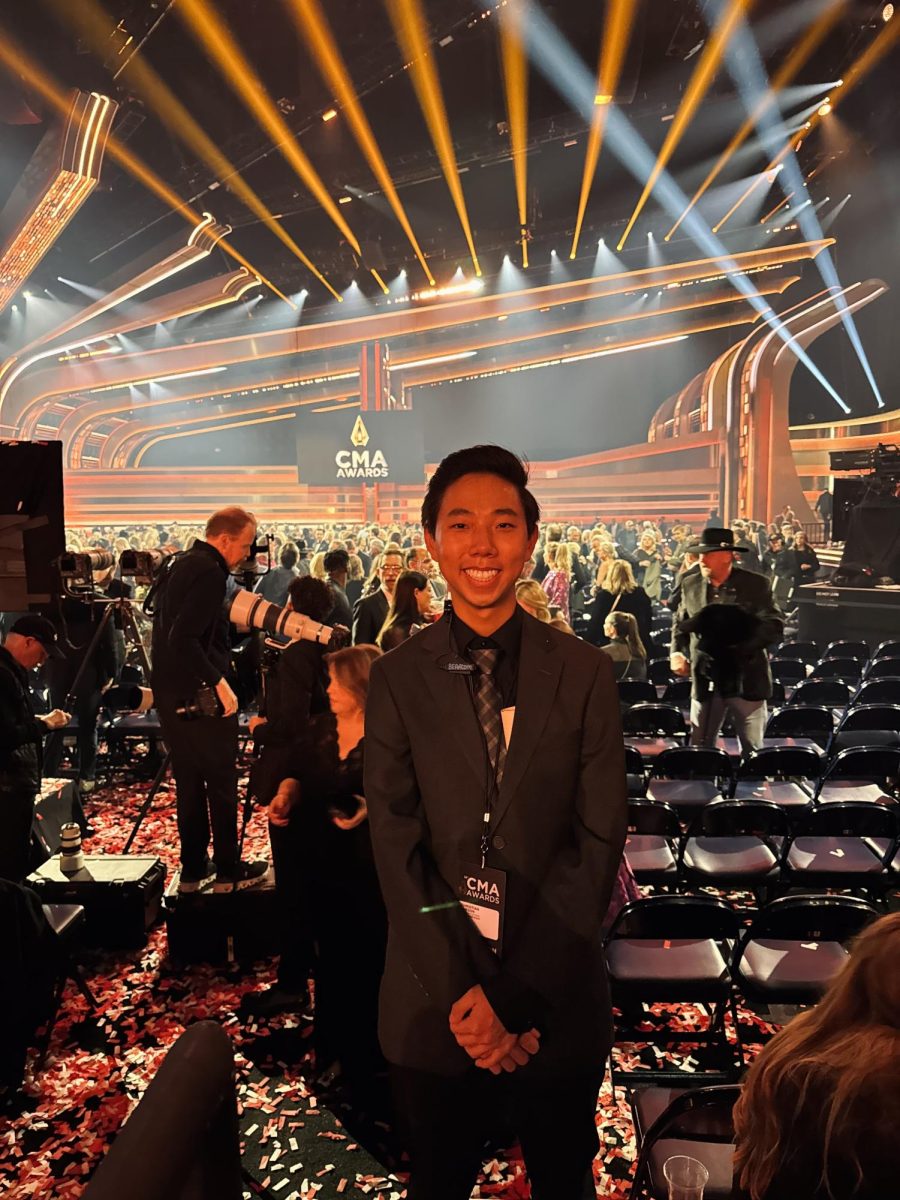The “Yakuza” franchise has had a huge rise in popularity in recent years. With memes from “Yakuza 0” going viral around 2016 along with positive word of mouth about the game’s quality, this was the time these games first got on a lot of people’s radar, including mine. But it wouldn’t be until 2020 when the franchise hits its peak of popularity and fully broke into the mainstream, with the release of “Yakuza: Like a Dragon.” This was also around the time I first picked the franchise up and became infatuated with it.
Despite not having a mainline sequel in close to four years now, there has been a glut of games from RGG Studios that either take place in the same universe or relate to the main series in some way. In 2021, fans received a remake of the game “Judgment,” a spin-off series about a detective in the same city as the events of most of the Yakuza games, as well as a sequel to that spin-off called “Lost Judgment.” This year, we received a remake of a game that was originally only released in Japan called “Like a Dragon: Ishin,” that takes characters from the mainline series and puts them in an unrelated historical fiction setting in 1890’s Japan. We also got “Like a Dragon Gaiden” a game that is neither a prequel nor sequel to the main series, but is just a different story that takes place at the same time as the events of the last game.
The reason that I bring all this up is that I think that the number of games being put into production and shipped out every year is starting to take a toll on the development team, as well as the final product. While I understand this was meant to be a relatively short game that mostly functions as a teaser for the long-awaited sequel to “Yakuza: Like a Dragon,” the game still feels half-baked in some ways.
The main place I felt this is in the story. The story for these games is typically just as, if not more important, than the gameplay, and is the main reason I feel compelled to play each entry. Kiryu is just such an interesting character and the world that he inhabits is just as complex, but with this game it feels like they just strip him down to his bare character traits. The fact that Kiryu is framed to always make the right choice in every situation and that he is always perfect moral authority, has been a slight issue throughout the series, but it gets very stale really very in this game. The reason this worked so well in the past, is because he was surrounded by imperfect people who would eventually learn to grow and become better people by Kiryu leading by example, and/or by literally beating some sense into them. That’s just not really present here.
There are some characters who initially seem like they might be interesting, like Hanawa, but they fail to grow in any meaningful way. Even the villains, who are typically some of the most interesting characters in the entire franchise, just fall flat and are forgettable. They mostly give off the illusion of depth by giving them these long and sad back stories, but it’s just the same thing we’ve seen over and over again in these games–but done significantly worse. It just feels lazy. One of the main villains is the grandson of a fan favorite character from “Yakuza 0” and it just feels like pandering. They don’t do anything new or interesting with him they just give him the same personality as his grandfather, and that’s it.
But the main reason these characters don’t feel nearly as fleshed out as they should is because of how extremely short the game is. Once again, I understand this is intentional, but I just feel like they bit off more than they could chew. Honestly, a lot of my problems with the story would be solved if they either narrowed the scope a little bit or made another half to the game. I had a very visceral reaction about 15 hours in. I was genuinely getting into the story and just got done with chapter five, and I was thinking, “Wow there’s so much here for them to build on I can’t wait to see what the other half of the game has in store,” and then a screen flashed by that said, “Final Chapter,” and my heart dropped. The game genuinely ends right when it’s getting good and then wraps up with an extremely lame and rushed final couple scenes, with one exception at the very end that got me kind of emotional.
I had a similar experience with the combat and the coliseum side story. I initially really liked it and thought it was a fresh new take on the typically “Yakuza” combat formula. It incorporated some elements from the “Judgment” series but also added some new elements that I initially really liked. In this game, one of Kiryu’s fighting styles is called “agent” where he has four different secret agent gadgets. Spider, which shoots a rope that temporarily ties up enemies and can throw them around. Hornet, which is a group of drones that can be called into stun and damage enemies during combat. Firefly, which is an exploding cigarette. And serpent, which is pair of rocket shoes, that can damage enemies when you run into them. He also has his more traditional “Yakuza” style, which is just the “Dragon of Dojima” style from previous games, and it’s just as fun here as it was in the past. That is until you level up enough and begin to realize just how easy it is to completely bypass enemies by only using a few moves.
The cracks really began to show for me when I went up against what is considered the hardest boss in the game. I was able to turn this fight into a one giant quick time event, by spamming the same heat action over and over. I then did this for the entirety of the last fight in the game. This had me both in shock and rolling on the floor laughing. I have never been the best at fighting in these games and typically need to rely on a lot of health items to get by, but if you do a minimal amount of grinding, you don’t have to break a sweat for most of the game. That was the final nail in the coffin for me.
While I didn’t hate this game and did see some interesting elements, I was largely disappointed. I did like the new ideas for the combat, but they were implemented so sloppily that it makes it hard to praise. The story starts out strongly, but it’s cut way too short which just leaves me feeling largely unsatisfied. There was also an entire reworking of the substory system which I felt to be mostly positive, but I can personally take it or leave it. I would recommend giving it a shot if you have Xbox Game pass like I do, since it’s free there, but if not, just save your money for “Like a Dragon: Infinite wealth” coming out in January. Overall, this turned out to be just another way for me to play Riichi Mahjong and not much else. 5.5/10.



















